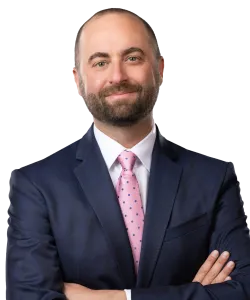Dispute Not Resolved: BCBSGA Sues Providers for Alleged Misuse of NSA Arbitration Process
On May 27, Blue Cross Blue Shield Healthcare Plan of Georgia, Inc. (BCBSGA) filed a lawsuit in the Northern District of Georgia US District Court, alleging that a group of health care providers, along with their third-party billing agent, manipulated the federal No Surprises Act’s (NSA) independent dispute resolution (IDR) process.
In the complaint, BCBSGA accuses Sound Physicians (a large, multistate physician group) and its subsidiaries, together with HaloMD, Inc., of systematically submitting thousands of ineligible disputes to the NSA’s IDR process. BCBSGA alleges the scheme involved falsely attesting to claim eligibility, overwhelming the IDR process, and inflating offers, resulting in millions of dollars being improperly awarded to Sound Physicians on those claims.
Background on the No Surprises Act
The NSA was enacted to protect consumers from unexpected medical bills by providing a process for resolving certain out-of-network payment disputes between providers and health plans. Providers and payers must attempt to negotiate disputed claims, and if the dispute is not resolved, the parties proceed to submit their offers (proposed payment amounts) and supporting evidence to an approved IDR entity (IDRE), which selects the winning offer based on defined criteria. Only certain types of claims are eligible for the federal IDR process. For example, claims involving the Medicare and Medicaid programs are not eligible. The decision by an IDRE is final and binding, and any payment owed by the non-prevailing party must be made within 30 days.
Alleged Exploitation of the IDR Process
BCBSGA’s alleges that the provider defendants, in conjunction with HaloMD (a company that specializes in the NSA), defrauded BCBSGA and its employer plan sponsor customers. The alleged scheme involved HaloMD and the providers improperly preparing and submitting claims to the IDR process in a number of ways, including:
- Ineligible Disputes: HaloMD allegedly submitted thousands of IDR disputes that were ineligible under the NSA, including claims for services covered by government programs like Medicare and Medicaid. BCBSGA also alleged that the defendants falsely claimed that they had engaged in negotiations with BCBSGA before submitting claims to the IDRE.
- Mass Filing Strategy: HaloMD allegedly mass-filed disputes to overwhelm BCBSGA and the dispute resolution process, initiating an average of more than 15 disputes against BCBSGA per day during the first half of 2024. BCBSGA struggled to manage this influx and identify purportedly ineligible claims.
- Inflated Compensation: BCBSGA claims that the providers and HaloMD submitted offers to the IDR process that exceeded the claims’ billed charges and prevailed on those inflated offers, resulting in BCBSGA facing more than $5.9 million in claims payments and IDR fees.
Legal Claims and Implications
BCBSGA is pursuing multiple legal claims, including violations of the federal Racketeer Influence and Corrupt Organizations Act (RICO) and Georgia RICO statutes, based on a purported pattern of wire fraud and conspiring to defraud BCBSGA. Other claims include common law fraud, negligent misrepresentation, statutory fraud, theft by deception, civil conspiracy, and violation of the Georgia Deceptive Trade Practices Act. BCBSGA also seeks through the suit to vacate certain final IDRE awards and to obtain equitable relief under the Employee Retirement Income Security Act (ERISA).
As the case was just filed, the provider defendants have not yet filed a response. While health care providers have previously challenged various aspects of the IDR process in court, health insurers have not often sought relief connected to the process through the court system. Based on the novel legal theories and range of allegations, the case will no doubt be closely watched by both providers and payers engaged in the NSA IDR process.
Contacts
- Related Industries



